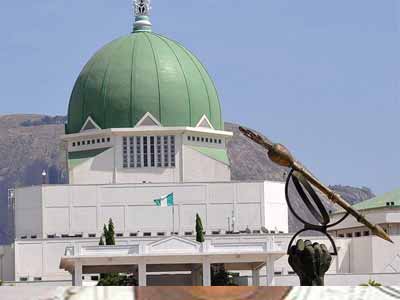 AS the Federal Government continues to consider options to finance the almost N3 trillion gap in its N6.08 trillion 2016 spending plan still before the National Assembly, the President Muhammadu Buhari administration may have cancelled most of the import waivers granted some Nigerians as well as operators in certain sectors of the economy by the Goodluck Jonathan government.
AS the Federal Government continues to consider options to finance the almost N3 trillion gap in its N6.08 trillion 2016 spending plan still before the National Assembly, the President Muhammadu Buhari administration may have cancelled most of the import waivers granted some Nigerians as well as operators in certain sectors of the economy by the Goodluck Jonathan government.
The action is aimed at revving up revenue to close the widening gap in the budget occasioned by the continuous fall in the price of crude oil at the international market.
Initially, at the presentation of the 2016 Budget Estimates last December, the deficit level was pegged around N2.2 trillion on an oil price benchmark assumption of $38 per barrel of crude oil.
However, following the persistent price fall and at the current level of around $32 per barrel, the deficit is estimated to have grown to almost N3 trillion, about half the size of the budget, with the consequence of increased borrowing and other belt-tightening measures to source revenue to deliver the implementation of the spending plan.
Developments in the oil minerals sector notwithstanding, the Federal Inland Revenue Service (FIRS), the Federal Government’s tax agency yesterday calmed frayed nerves with the assurances that the agency would rise to the country’s revenue challenge by raising N4.95 trillion from taxes.
Accordingly, most of the import concessions granted in the immediate past administration of Jonathan have been recalled or cancelled, meaning much more revenue will be expected from the Nigeria Customs Service (NCS).
In 2014, the Coordinating Minister for the Economy and Minister of Finance, Dr. Ngozi Okonjo-Iweala, declared that the country had lost N797.8 billion between 2011 and May 2014 to import waivers and tax holiday concessions. Of the amount, N25.814 billion was the level between January and May of that year.
The Head of the recently established Efficiency Unit at the Federal Ministry of Finance, Patience Oniha made the disclosure at a roundtable interaction with journalists in Abuja to share insight into the unit’s progress report, following a successful survey of Ministries, Departments and Agencies (MDAs) of the Federal Government’s Implementation of their overheard budgets year in year out.
Her words: “Since our inauguration in November last year, our unit has undertaken a detailed survey of overheads spending patterns of Ministries, Departments and Agencies (MDAs) as year in and year out and we have developed standardised pricing templates for MDAs as well as worked out a centralised procurement system where we can enjoy great leverage on discount from suppliers and our estimate is that from procurement alone, the Federal Government can be saving more than N12 billion annually if we adhere to the guidelines.
“And as a result of the need to eliminate waste and save as much as we can particularly at these times that our revenue profile is at its lowest ebb, we are going to enforce the guidelines and it is not going to be business as usual. MDAs that violate these guidelines will be seriously sanctioned by the anti-graft agencies. It’s because of this that the Federal Government has already cancelled most of the waivers granted by the past administration so that these importers can pay their duties to rev up revenue for the government.”
Meanwhile, the Executive Chairman, FIRS, Mr. Babatunde Fowler while speaking at the opening session of its agency’s corporate strategy retreat in Abuja yesterday listed the targeted sum as follows : a sum of N2 trillion projected to be generated from Value Added Tax while Companies Income Tax(CIT) will fetch N1.87trillion; Petroleum Profit Tax (PPT) , N800billion; Education Tax, N180billion; and the National Information Technology Development Fund, N20 billion .
He said: “We have proposed a revenue target of N4.957trillion for 2016. This target is largely dependent on non-oil collections and in particular, VAT will account for N2 trillion and CIT is expected to account for N1.87 trillion.”
On the revenue performance of the service for the 2015 fiscal period, the FIRS boss said the service was able to generate N3.74 trillion out of its target of N4.57 trillion.
For Value Added Tax(VAT), N767.33billion was generated out of a revenue target of N1.28 trillion; for PPT, N1.28trillion was generated out of a target of N1.48 trillion; while for CIT Fowler said the service collected N1.29trillion from the target of N1.51 trillion.
He said:”The above performance is clearly unacceptable and is not a reflection of our capacity. I am particularly not pleased with the very poor VAT collection, which based on my previous experience at the state level in the administration of tax similar to VAT, should be high yield and easy to collect.”
In his remarks at the event, the Minister of Budget and National Planning, Udo Udoma, said the reforms being carried out in agencies of government had provided a platform to generate additional revenue from non-oil sources.
He said the country had yet to take advantage of its size as the largest economy in Africa to generate enough revenue from non-oil sources as Nigeria’s tax to Gross Domestic Product ratio still falls below global average.
According to the minister, Nigeria’s tax revenue performance is 7.4 per cent of GDP compared with 27.4 per cent in South Africa, 18.7 per cent in Malawi and 19.5 per cent in Kenya.







